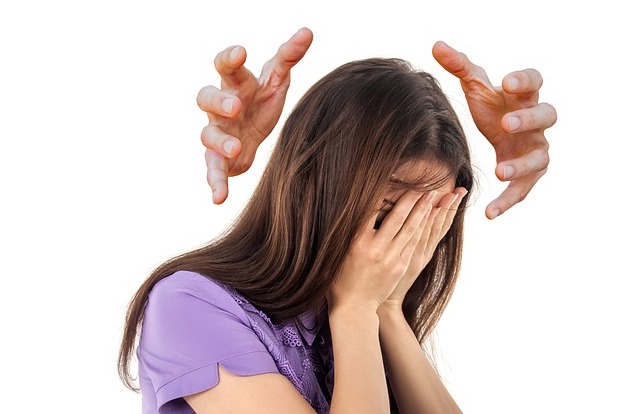5 Surprising Ways Stress Affects Sleep –
Sleep is a vital function of the human body that is often taken for granted. It helps your brain recharge and your body to rest. However, when quality is poor, your body does not get the full benefits of sleep.
Research has shown that most Americans would feel healthier, happier, and safer if they were able to sleep an extra 60 to 90 minutes. The American Psychological Association’s 2014 Stress in America survey also shows that stress is interfering with sleep, preventing a lot of adults and teenagers from getting the sleep that they need to be healthy. Stress can come in different forms and can be present in many areas of your life. If left unchecked, stress can significantly affect sleep.
Stress Reduces Quality of Sleep
Stress lowers your shut-eye quality. The Stress in America survey showed that 42% of adults are getting only fair or poor quality of sleep when they are stressed.
Stress can also cause a type of dream known as a stress dream or anxiety dream. After experiencing a stressful dream, you may feel uneasy, distressed, and apprehensive upon waking up. They can also recur, which means you might probably have anxiety dreams as long as you remain stressed. As a result, stress builds up which further reduces the quality of your sleep.
Stress Increases Insomnia Risk
Those who suffer from stress are more susceptible to insomnia, a sleep disorder. Worries can keep your mind active at night, making it difficult to sleep.
Difficulty in sleeping is sometimes the first symptom of stress. A 1996 study found that 15 to 20 percent of people diagnosed with insomnia develop major depression. Consequently, it is harder for them to fall or stay asleep.
Stress prevents you from drifting off too. When you fall asleep, your body begins to switch from an active sympathetic nervous system to a calmer parasympathetic nervous system. However, this shift can get interrupted by stress. Whenever you are worried about something, your sympathetic nervous system will not shut down. Also, your brain will remain hyperactive, thus increasing your risk to develop insomnia.
Stress Creates a Vicious Cycle
Stress can be the catalyst in the vicious cycle of sleepless nights. If you lack sleep, you feel more stressed. If you feel more stressed, you have difficulty sleeping.
As a basic human need, not getting enough sleep can affect the way you function. You move slower and are less productive. Also, you have the tendency to make poor decisions, which could result in stressful situations. More stress during the day makes it difficult to get quality sleep at night. If not immediately addressed, the cycle may gather enough momentum to pose serious health concerns.
Stress Causes Different Diseases
Sleep is the time when your body, brain, and muscles rejuvenate. Your whole body enters the sleep architecture state. It occurs in ninety-minute cycles when you sleep to reconstruct the tissues and muscles in the body and detoxify the brain. However, when the body and brain cannot enter the state of sleep architecture, you lose sleep because of stress.
Excessive sleep loss due to stress is also linked to different health issues: Mood disorders, diabetes, heart diseases, and obesity. In fact, if stress deprives you of sleep long enough, you can develop paranoid delusions and hallucinations. These diseases may be exacerbated and cause fatal health problems if sleep deprivation due to stress continues.
Stress Creates Hormone Imbalances
If you do not get enough sleep due to stress, it can affect two hormones that help regulate the appetite. The levels of leptin, the hormone that makes you feel full, decrease. Meanwhile, the levels of ghrelin, the hormone that makes you feel hungry, increase. These changes can increase your appetite and eventually cause weight gain.
When people are sleep deprived, they also tend to overeat later in the day. A study shows that sleep-deprived people eat more calories after dinner than what they eat in a single meal. They also consume snacks that are high in saturated fats and carbohydrates. The body struggles to burn these additional calories if the person lacks sleep.



